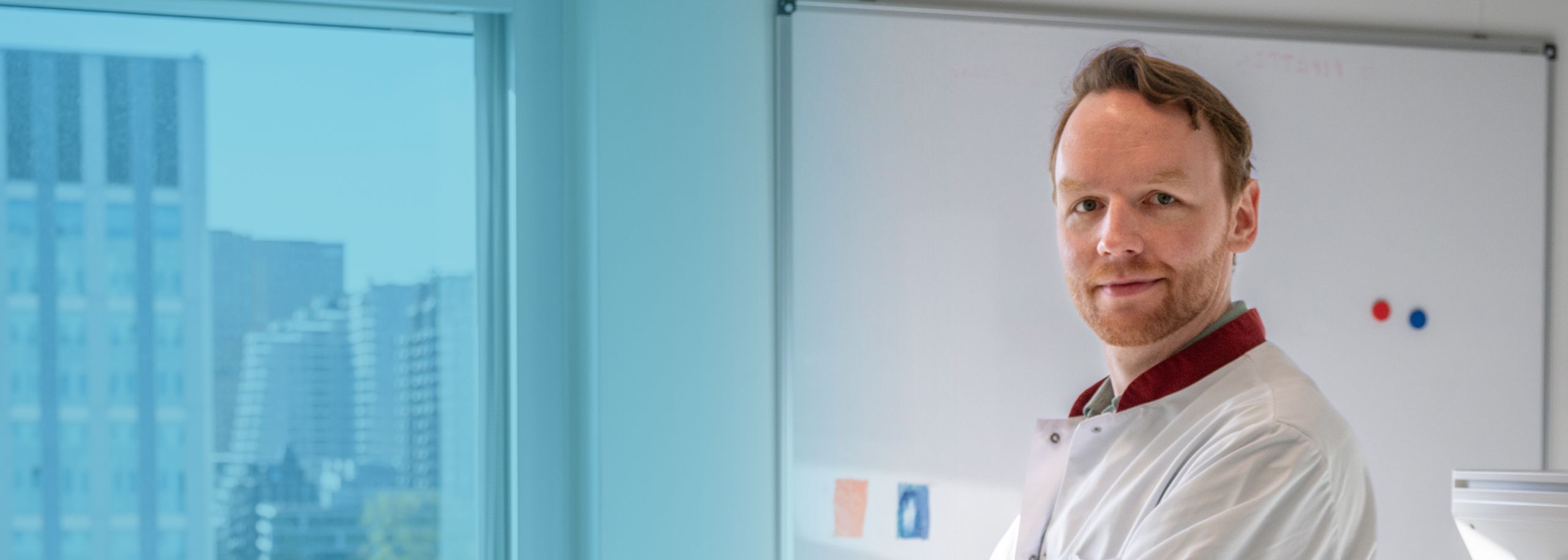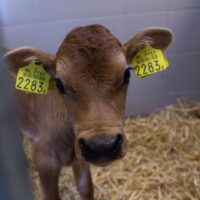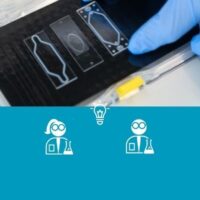Small projects can have a big impact, as demonstrated by the work of Aram de Haas. By helping scientists switch from foetal calf serum to animal-free alternatives, his pilot project paves the way for animal-free research. This is not only better for animals, but also for the quality and reliability of research. What motivates Aram to drive this innovative and sustainable transition? In our Drijfveren section, we meet the people behind the transition to an animal-free future.
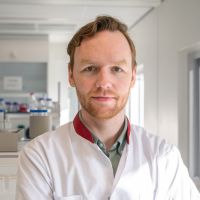
With his pilot, Aram promotes animal-free research
A few years ago, Aram himself was a researcher at Amsterdam UMC. Now he works there as sustainability coordinator and leads, among other things, a pilot project promoting animal-free research. After all, research without laboratory animals is not always free of animal materials. For example, to grow human cells, foetal calf serum (FCS) is used. This ‘research material’ is extracted without anaesthetic each year from an estimated two million foetuses of cows that turn out to be pregnant at the slaughterhouse.
The standard, but not the best option
“Using calf serum has been the standard for 60 years,” Aram explains. “This also used to be the best option, but now we have alternatives that are not only animal-free but also better. It is impossible to make animal-based products exactly the same all the time, so there is a risk that the results of different studies will be difficult to compare. On top of that, a human body obviously does not use material from cows to grow cells. And FCS then also comes from a foetus, which naturally grows much faster than an adult body.”
Looking at the content as well as the method
Moreover, according to Aram, researchers should not exclusively strive for ‘the best research results’.
“During my own research, I noticed that scientists are only judged on the content of their research, whereas I think scientists should also be encouraged to take responsibility for possible harmful consequences of their methods. If you are committed to improving health and well-being, it should not only concern the people who benefit from your research, but also all other life and the earth as a whole.”
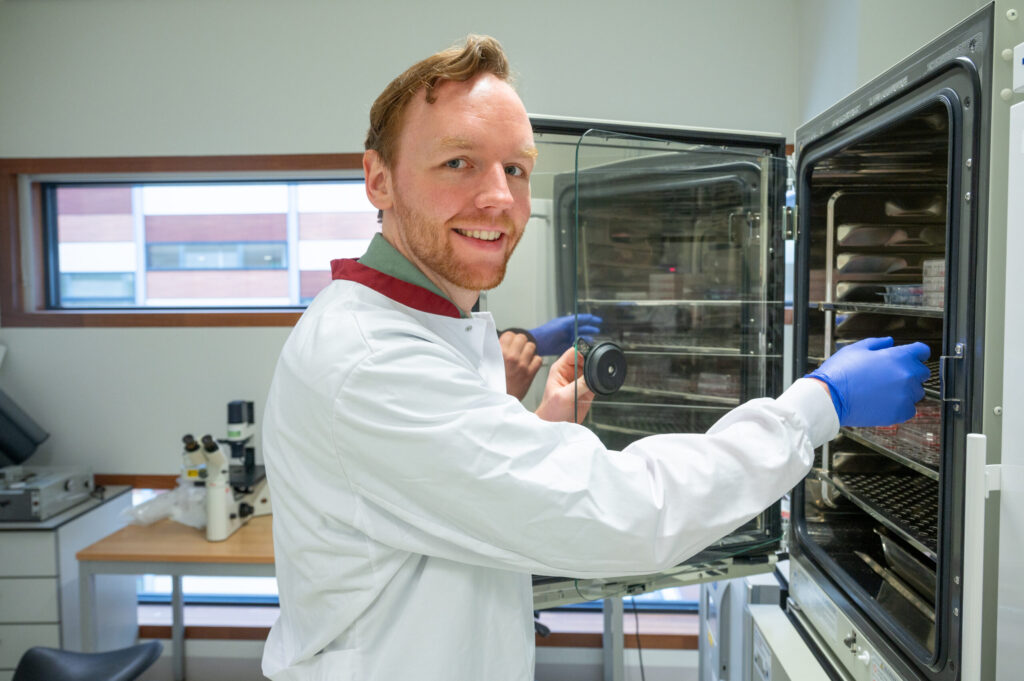
Lowering the threshold to animal-free research
There are alternatives to FCS, but because not every alternative is suitable for every type of research, the switch is often difficult for researchers. “Time and money are hindering factors,” Aram knows. “We remove those barriers by matching researchers with proven animal-free alternatives that suit their research. We also sponsor those alternatives so that researchers can test the alternative without financial risk. We can do the latter thanks to the grant from Proefdiervrij.”
Aram de Haas: “Many scientists personally really want to work animal-free, but are hampered by the system. To change, you need support.”
Removing as many barriers as possible
According to Aram, in any transition, it is important to remove as many barriers as possible. “Many scientists personally really want to work animal-free, but are hampered in this by a system where FCS is still in 90% of protocols. To change, you need support. As a researcher, when I found it important to shape my methods with animal welfare and sustainability in mind, my supervisors gave me space to do so. From the position I am in now, I in turn want to help others design their research with animal welfare and sustainability in mind.”
Small projects, big impact
Major breakthroughs often start with ‘small’ projects, in which forward-thinking researchers test new ideas. However, these so-called pilot projects rarely receive funding from large institutions because the outcomes are uncertain. Yet it is precisely these projects that are essential for moving animal-free research forward.
Aram de Haas helps researchers test existing animal-free materials to suit their research. With his pilot project, he is laying the foundations for a long-term fund, which will enable him to support more scientists in switching to animal-free alternatives.

